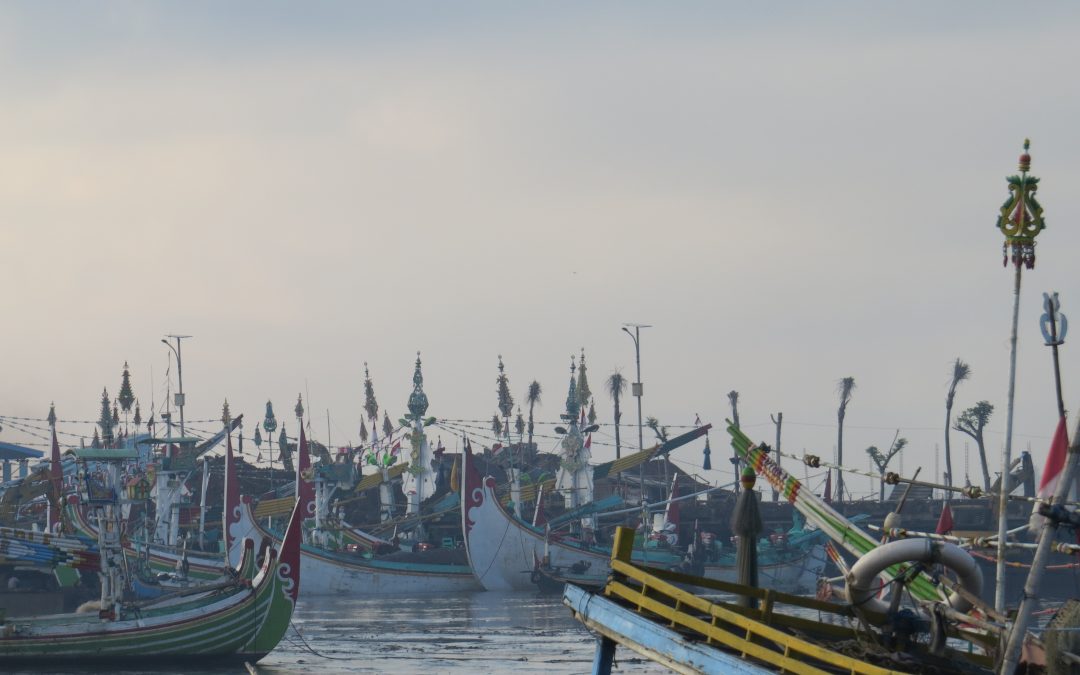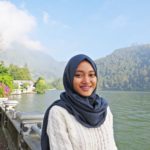The moment has finally come! Today Vidlia, Retno and I arrived in Muncar, Banyuwangi to launch our new sustainable fisheries initiative.
After our long overnight bus journey from Bali, our first priority was to find our temporary guesthouse and take some rest. A short while later, feeling refreshed, we were ready to explore. Walking is a good way to experience Muncar, and so we walked to visit some of the locations that will be important for our fisheries work, including the port and the fish markets.
My first impression of the city was the smell of fish! This was closely followed by amazement at the beautiful boats moored in the harbour, as well as the friendly greetings we received from all the people.
The smell of fish is everywhere in Muncar, and comes from the many processing factories. On our walk home from the harbour, a distance of only 1.5 km, we passed five large fish processing factories. The smell was even sharper when we arrived at the harbour, where piles of fish were being dried in the sun. Local people say that this smell is a good sign for Muncar, as it means that the fisheries are plentiful and bringing good fortune to people.
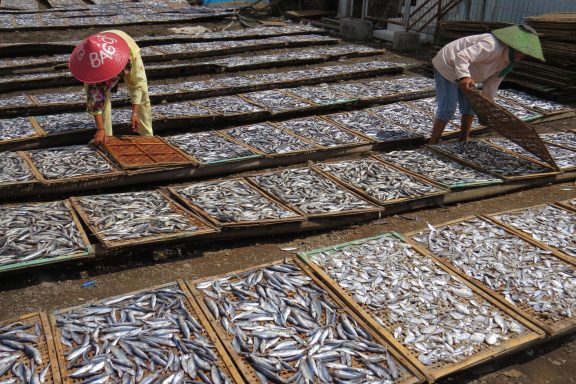
Sun-dried sardines and other small pelagic fish are a major product from Muncar fishing port
My struggle to adjust to the smell of fish paid off once I got to the harbor. Here we were greeted by the dramatic and beautiful views across the water. I knew that Muncar is a fisheries city, and so I expected to find a lot of fishing boats in the harbour, but I never imagine that there would be so many. Muncar harbour has more fishing boats than I have ever seen. And not only the number of boats, but also their beautiful ornaments amazed me. Every boat was adorned with bright colours and intricate ornaments. The harbour was so colourful, I thought a festival must be taking place, but I soon learned that it is like this every day. Seeing the number and the beauty of the boats, I realised that Muncar is not only a fisheries centre, but that the people here are very proud of their fishing professions and heritage.
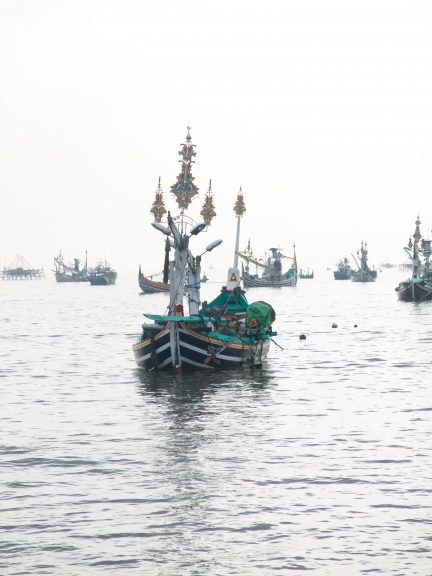
Muncar’s fishing boats are adorned with bright colours and intricate ornaments
As we walked, we were greeted by many friendly local people who, somehow, could easily identify that we were not from Muncar. First, they asked “where do you come from?”, followed by “are you doing research?”. We passed several fish collectors, who asked us what species of fish we are focussing on, and offered us to measure the sharks and rays in their stores. It seems that local people welcome newcomers with pleasure, and are happy that we want to study and evaluate new fishing technologies that can help the fishermen. One fish trader even suddenly stopped his bike in front of us and offered his contact number in case we need help to know more about the fisheries industry in Muncar.
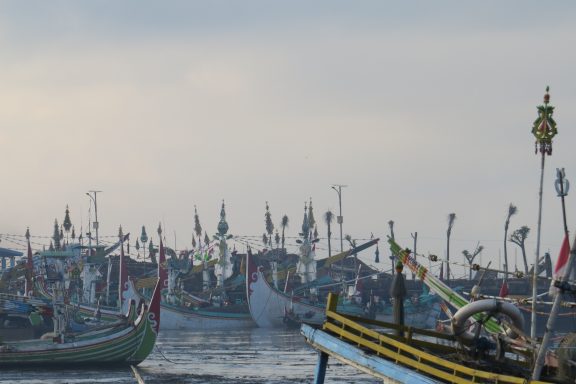
Hundreds of beautiful fishing vessels in the harbour of Muncar, Banyuwangi
After just one morning exploring Muncar, I can see that almost all professions here are related to fisheries, from fishermen returning from the sea, to mothers selling fish in the market, passing vehicles distributing today’s catch to fish collectors and factories, and uniformed factory employees ready to go to work. The fisheries here are a rich tradition and an important source of employment and livelihoods. I am even more excited to begin our work helping local fishermen to ensure a sustainable future for their professions.

